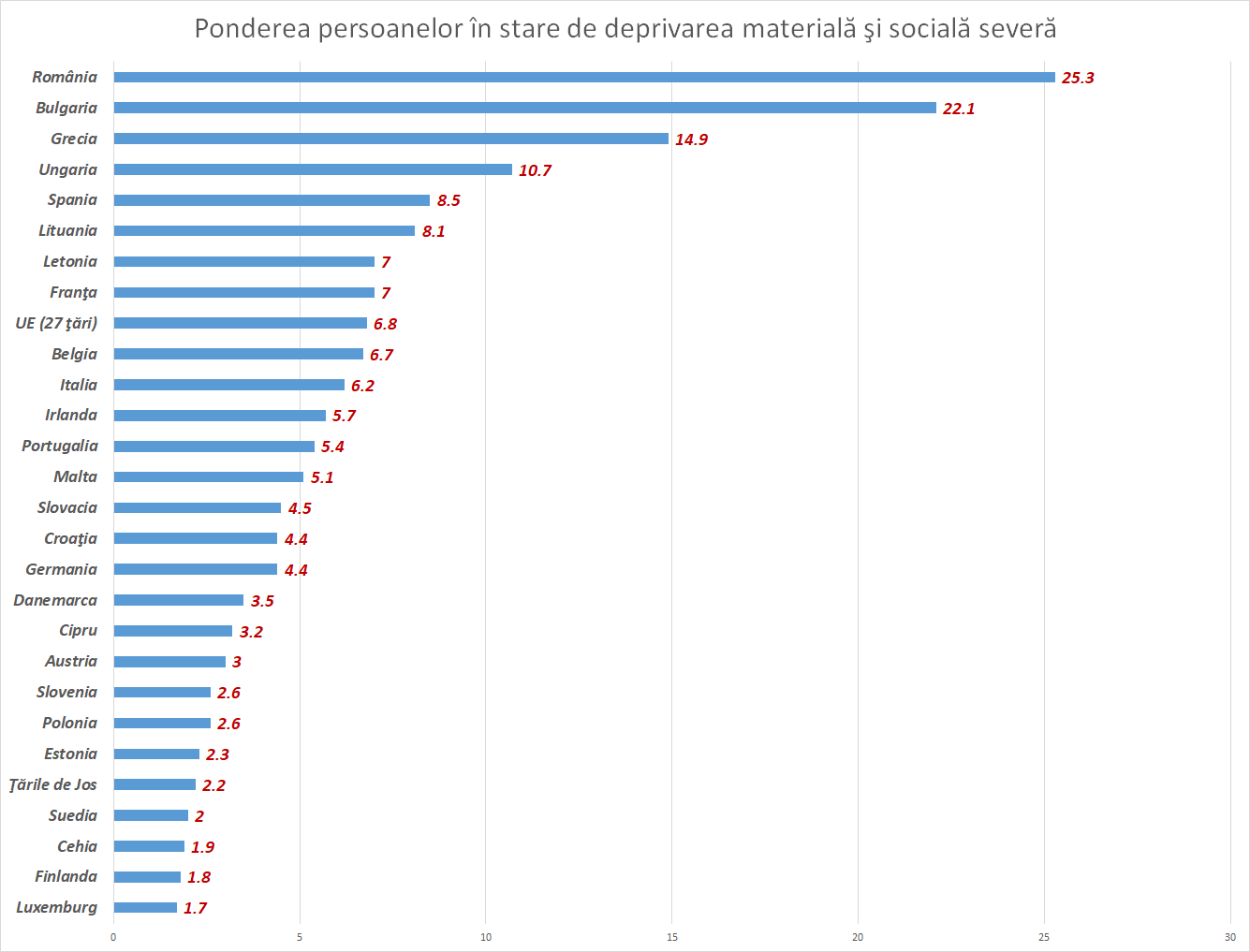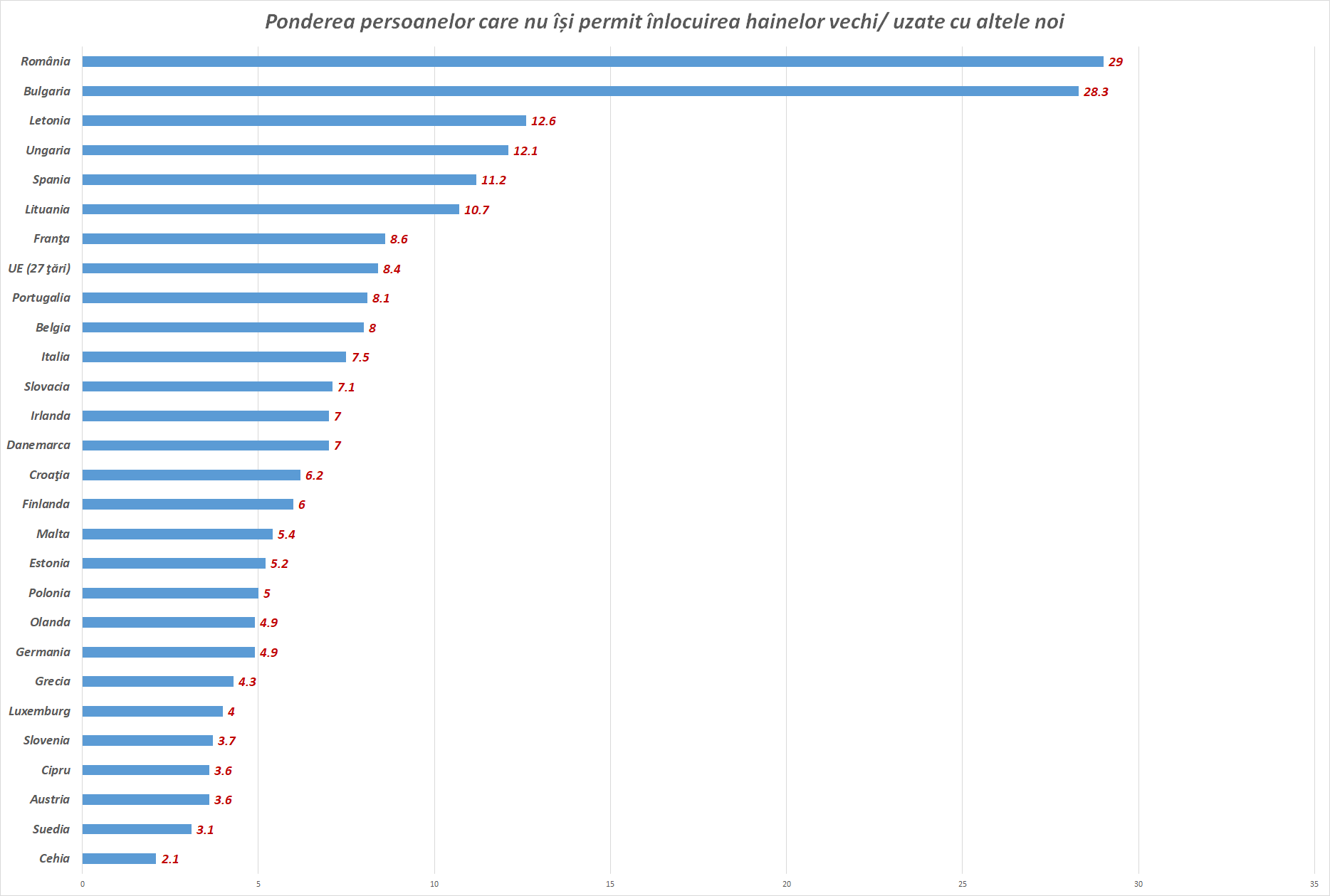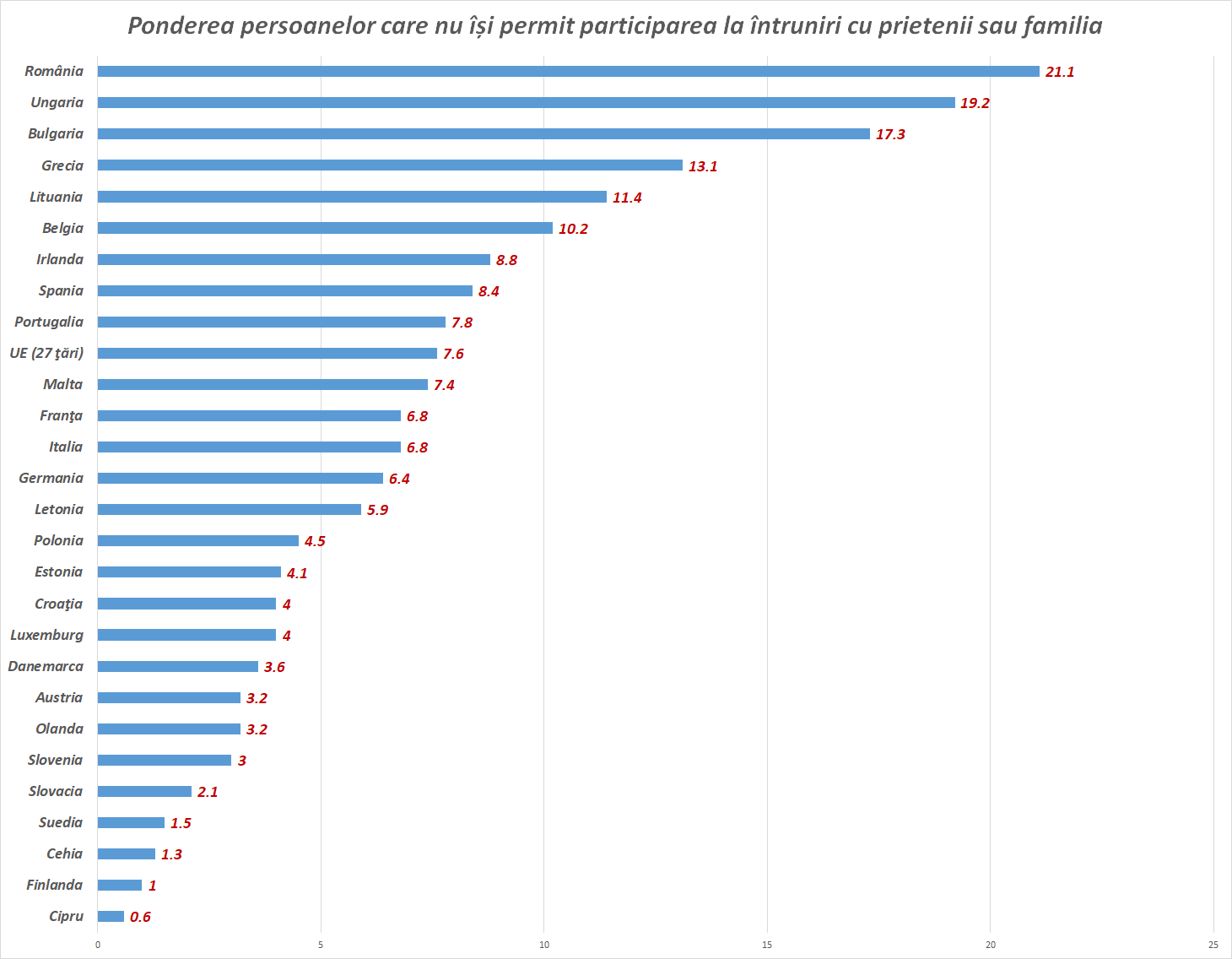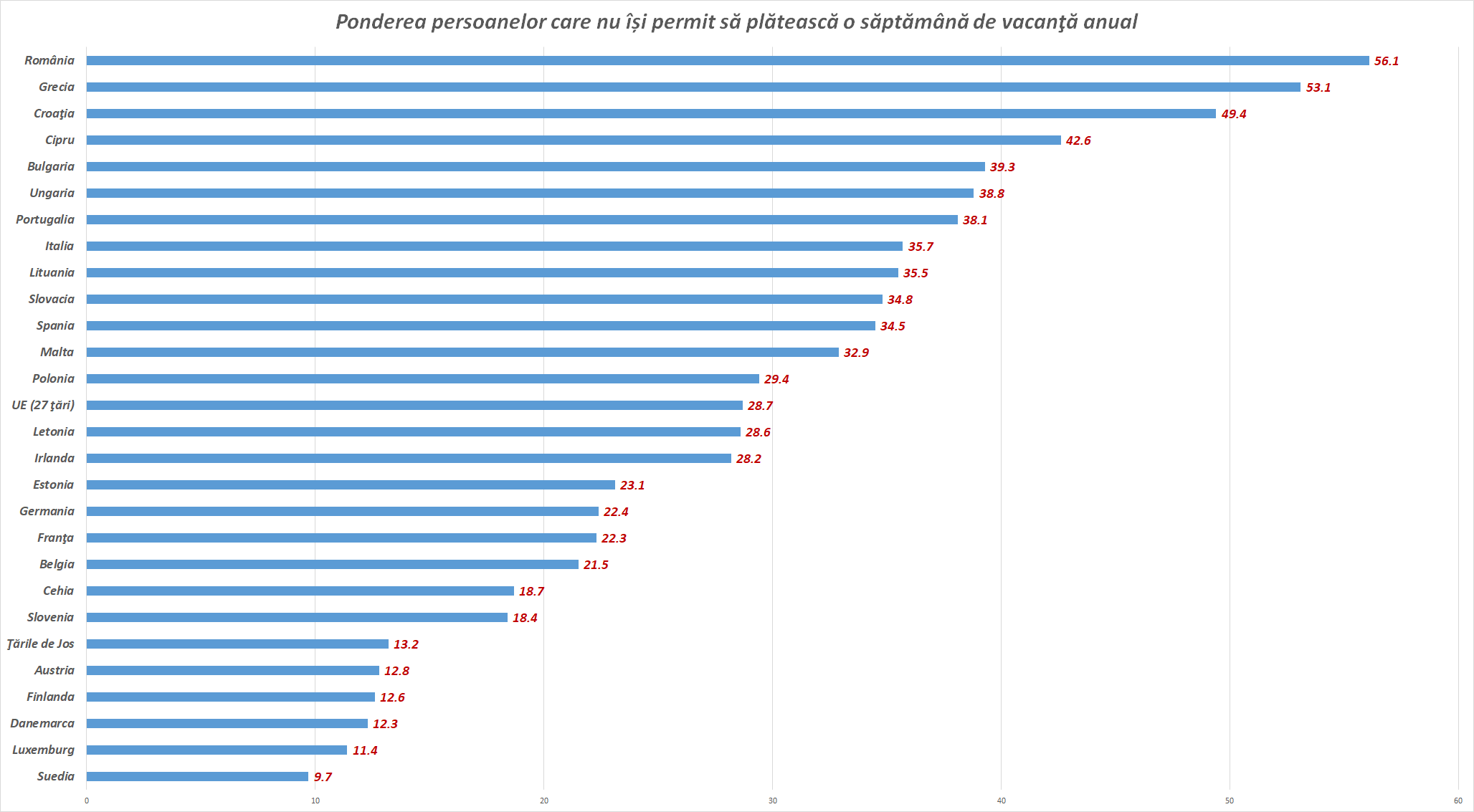
“We’re surviving, but it’s not called life,” says Ioana Apreotesei, who works for minimum wage in a city in the country’s northeast. “On payday, I instantly lose half of my money. They go to the phone bill, rent and utilities. I buy food for another week, and 10 days before the holiday, the money runs out,” she says. Ioana tells the unspoken truth – even if Iohannis, Cuke or Iserescu told her that she lives in the best Romania in the last hundred years, Ioana would look at them with disbelief.
There is no doubt that Romania is doing well in the EU in many respects. We have good rates of economic growth (even if the recession is accompanied by inflation, one of the highest in the EU). We have internet speeds that put us on top of the world.
In many aspects, Romania is doing well or very well in the EU
1. Volume of production of passenger cars: Romania ranks seventh in the EU among the leading producers of passenger cars. Production in 2020, according to the latest aggregate data, was almost 438,000 cars in Romania, more than in Hungary (433,000) or Poland (221,000). Germany, the largest European manufacturer, produces 3.4 million cars annually.
2. Last year, compared to some member states of the European Union, Romania took the first place in terms of the area planted with corn per grain and the second place in terms of production after France.
3. Internet speed: Romania ranks 1st in the EU. With a broadband Internet download speed of around 200 Mbps, Romania ranks first in the European Union for this indicator. The average download speed in Europe is around 100 mpbs, less than half the download speed in Romania.
4. According to data provided by the International Organization of Vine and Wine (OIV), analyzed by Wines of Romania, wine production in Romania will reach 4.4 million hectoliters in 2023, registering a growth of 15% compared to the previous year and 4% higher. on average over the last 5 years. This indicator strengthens Romania’s position as the sixth largest wine producer in Europe.
5. In 2022, Romania was in fifth place in the European Union in terms of the area planted with wheat after France, Germany, Poland and Spain, and in fourth place in terms of production volume after France, Germany and Poland.
But we also have sections where we are unfortunately bad. And not enough
Below is our place in the EU according to the indicator “The share of people who are in a state of serious material and social poverty”

Severe material and social deprivation refers to people who, due to a lack of financial resources, cannot afford 7 of the 13 basic components of a decent life, such as:
– the ability to withstand unforeseen costs;
– the possibility of paying one week of vacation per year;
– ability to pay rent, mortgage or utilities on time, without debt;
– eating meat, fish or a vegetarian equivalent at least once every two days;
– proper heating of the house;
– access to a car for personal use;
– replacement of old furniture;
– access to the Internet at home for personal purposes;
– replacement of old/worn clothes with new ones;
– availability of two pairs of shoes (including a pair for any weather);
– spend a certain amount of money every week on your own well-being;
– regular participation in leisure activities;
– meet friends/family at home or elsewhere, at least once a month, to have a drink or a meal together.
Almost every third Romanian cannot afford to replace old clothes with new ones
We see packed malls and people trying on and taking clothes. But this is happening in the capital and several large cities. In the rest of the country, things are going quite differently.

They say we are a people who like to hang out with friends and go out. So it will be, but, by the way, everything looks different on the numbers:

We are also not brilliant when it comes to holidays. Joana Apreotesei was not on vacation for about 3 years. I mean, although he took his legal right not to go to work, he stayed at home because he didn’t have money for a hotel on the sea or in the mountains.

Romania remains a very rich country with huge differences
That’s right, next year’s elections represent a way for Romanians in these categories to make their voices heard.
It is certain that Romania remains a very rich country with a growing wage disparity, low unemployment and labor shortages, which pose many challenges for employers.
“Romania has the highest income inequality in the EU and the highest inter-regional disparity. Even the European Commission noted that the gaps between Romania’s development areas have deepened over time, leading to the emergence of regional poles of competitiveness, along with chronic poverty in some areas. Unfortunately, the lack of infrastructure for the interconnection of historical provinces contributes to the preservation of these gaps. This problem has a tendency to become a problem even for national security,” said BNR Governor Mugur Iserescu at an economic event.
The main results of the Eurobarometer survey (which looks at education, income, social status and intergenerational mobility) show that less than half of Romanians believe that people have equal opportunities in life.
And we didn’t even talk about roads, corruption, child mortality…
Photo source: Dreamstime
Source: Hot News
Lori Barajas is an accomplished journalist, known for her insightful and thought-provoking writing on economy. She currently works as a writer at 247 news reel. With a passion for understanding the economy, Lori’s writing delves deep into the financial issues that matter most, providing readers with a unique perspective on current events.